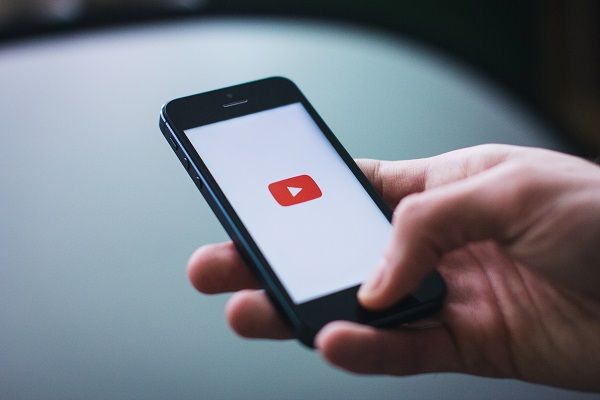Traditionally, wholesale-style transactions are more likely to be B2B whereas B2C (business to consumer) tend to mimic a retail-style business model.
Benefits of B2B
If you're still considering a target market, don't rule out businesses. On the whole B2B transactions average a higher price per sale than B2C merchandise. This isn't surprising when you consider companies usually have more capital to spend than the average consumer.

B2B vs. B2C
You might be surprised to hear, B2B-style e-commerce has a lot in common with B2C e-commerce- namely, the bulk of the process is the same. However, there are still a few key differences:
Traditionally, B2B buyers are what we'd call ‘professional' shoppers, i.e., they're held to a higher level of accountability when it comes to spending company money. Whereas B2C purchases are primarily based on personal preference because the consumer only has to worry about pleasing themselves. This means, on the whole, B2C consumers aren't usually as well-informed as B2B buyers- making them easier to sell to as they're more likely to buy on a whim.
In addition to this, trying to get a B2B buyer to switch vendors, can be tricky. More often than not, they're set in their ways because for them changing providers (in some cases) can cause a great deal of upheaval to the day to day running of their business. This means buying decisions often take more time, effort, and in some cases more money to commit to in comparison to B2C sales.
So, B2B marketers need a little patience and should focus on offering a premium user experience. As part of their marketing strategy, business owners need to make the benefits of their products and services very clearly known (more on that later!).
If you're running a B2B-centred company, and want to improve the overall quality of your service, consider hiring a mystery shopper. Although this is something traditionally associated with consumer brands, there's no reason these methods can't be used in B2B markets.
It's often hard to critique our own work, so a fresh pair of eyes is a massive benefit. Instruct the mystery shopping company to provide feedback on the following areas:
- The user-friendliness of your website,
- The value gained from your membership area,
- The smoothness of your go sales funnel,
- The helpfulness of your customer support team,
These notes are invaluable for helping improve the services you provide.
How Do B2B Sales Differ from B2C?
It almost goes without saying, selling to businesses is somewhat different from selling to individual customers.
As we've already alluded to, the B2B sales process is far more complicated. Namely, because it's not uncommon for B2B companies to have more than one person who needs to approve the sale before the purchase can go ahead, this means building a rapport with the prospect(s) can take time, which drastically slows the speed at which marketers move through the sales cycle.
More often than not, transactions can take months! This may seem tedious when you first start running your business, but unfortunately, it's just the nature of the industry. Be prepared to keep your leads engaged with your brand over an extended period of time.
We often forget that when we're selling to businesses rather than traditional consumers, the money at stake isn't there's- it's the companies. Splashing the cash on something that isn't deemed a wise purchasing decision by their colleagues can result in losing their jobs- the steaks are high! This is especially true if you're selling high-ticket products and services they're not familiar with.
This is why it's even more important you make the benefits of your goods well-known, i.e., how does what you're offering help your prospects make a return on their investment? Plaster glowing customer testimonials, case studies, and other accolades all over your website. This kind of social proof works wonders for communicating your reliability and trustworthiness of the brand and the products and services you provide.
In some cases, sellers have to go through a bidding-style process to secure the sale. This usually occurs if a potential customer publishes a request for proposals. If you're selling in an industry that requires the submission of various quotations and plans, you'll want to ensure you turn them around quickly, and have something competitive to offer. Otherwise, you don't stand a chance of securing the business!
Interesting, as much as 57% of the decision-making process in B2B sales is done even before the marketer makes a connection with the prospect. Companies often have a firm grasp of the kind of products and services they want to invest in. For example, they may have:
- Already seen an online ad,
- Know someone who's used and recommended a product or service,
- Browsed through your website,
Either way, B2B marketers need to ensure the content they publish is top-notch. As many as nine out of 10 online buyers now claim that the content provided by a brand influences their purchasing decisions. This is just further evidence to support that a great deal of the sales process is done via your ad copy, your social media presence, your blog, your web pages, your lead magnet, etc.

Image credits: Freepik.com
Can B2B Brands Also Sell to Consumers?
Yes, of course.
Just because your brand prioritizes business, doesn't mean you can't sell directly to customers. For example, if you're a greengrocer, you might focus on selling produce to local cafes and restaurants, but that doesn't mean you can't sell fruit and veg to home cooks as well!
This same analogy can be applied to almost every niche.
Hurdles B2B E-Commerce Owners Need to Overcome
A significant barrier most digital store owners face when conquering the B2B market is getting to grips will all the available resources and software. There are loads of programmes out there to help with the smooth running of your business!
For example:
- Back-office software,
- Accounting systems,
- Inventory management systems,
Just to name a few!
For many, the running and integration of these systems appear like a technical nightmare- especially, for those who hate tech. However, you'll be pleased to hear, these days, there are loads of user-friendly solutions specifically designed for B2B companies.
Understand the B2B Buyer's Journey
We're not for a second saying all B2B buyers go on the same sales journey. For example, some customers require a lengthy quotation process; others prefer a short trial of your products and services, while some might just be upgrading software they already have, etc.
However, you should familiarize yourself with the generic B2B buyer's journey. This will help you to publish content that better resonates with your target market.
So here it is:
- Initial Awareness– the customer becomes aware of your company
- Their interest is sparked– the consumer is intrigued by what your brand has to offer
- They now have a desire for your products and services– the prospect has now moved from liking the idea or your products and services to wanting to make a purchase.
- Now they'll take action- this is where they'll reach out to you.
As you analyze a lead, try to place them somewhere on this timeline. Then use this to guide how you communicate with them. Each stage presents a different set of wants and needs- so, be sympathetic to that in your marketing and customer service.
Communication and B2B Companies
It's not uncommon for B2B-focused companies to use a plethora of communication channels. Typically, they'll have at least all of the following:
- A customer support telephone line
- Live chat
More often than not, customers already have some kind of relationship with your brand before they contact you. In fact, as many as 84% of B2B sales occur as a result of referrals! This means providing the best possible customer service and where possible, an incentive scheme for clients to refer more clients your way.
Where Do I Start With the Marketing of My B2B Business?
You need to understand what the client's struggling with and demonstrate your product or service provides a resolution. If you're unsure how to get the word out about this, consider focusing your marketing efforts in the following areas:
- Create an email list full of targetted prospects
- Craft compelling email marketing campaigns
- SEO-optimize all your web pages
- Social media: B2B marketers using social media are 79% more likely to meet or exceed their sales targets! You can develop a relationship with your social media following by running laser targetted advertising campaigns. Facebook is particularly useful for this!
- Trade shows: although some consider trade shows an outdated form of drumming up trade, for B2B businesses they work like a charm. 77% of B2B marketers claim they've accumulated a significant number of leads at these events.
Marketing methods to avoid:
COLD CALLING- this is a big no-no. Traditionally, B2B sales were associated with cold calls. However, these rarely translate into fruitful results- as many as 90% of decision-makers respond negatively to cold calls. These tend to annoy decision makers and can harm your brand.
Do Your Research
Before you put any of these marketing methods into action, you need to do your research and find out the following info:
- Are your leads using the products and services of your competitors? If so, why?
- What are your rivals doing that your consumers can't get enough of?
- How are your competitors marketing themselves on social media?
- What's their website like?
- What does their brand voice sound like?
- What information do they provide their customers?
- What lead magnet do they offer?
In addition to answering these questions, see what your customers are saying about them on review platforms like Yelp, Google My Business, and their social media pages. This will help you deduce what they're doing well, and more importantly, what are they're doing poorly.
Top Tip: It's not uncommon for marketers to sign up to their competitor's email lists- not because they want to see what they're offering, but because it's the only way to see how they're doing things For example:
- How they're customizing their emails
- The kind of content they're providing their audience
- The types of services they offer
You should also make the most of social listening tools like Buzzsumo, to track and monitor any mentions your brand is getting online and that of your competitors- this gives you a better idea of how you weigh up against your rivals.

How Do You Measure B2B Sales?
You can use software like Google Analytics to track the entirety of your sales process. By this, we mean monitoring the sales cycle from the first point of contact, right the way through to the customer making a purchase.
These are the metrics you want to pay careful attention to:
- Cost of customer acquisition
- Customer service response times
- Sales growth
- The lifetime value of a customer
These figures are amazing for enabling business owners to improve the quality of their service, to predict future growth, and most importantly, to enhance their marketing campaigns.
After all, this is the only way to deduce which advertising methods produce the most ROI. Once this is established, marketers can focus on the techniques that boost profits.
You might be surprised to hear, even if you've never communicated with a lead before, it doesn’t mean they don't know your brand. You can also utilize automation marketing tools like:
- Marketo,
- Eloqua,
- Pardot,
These resources enable you to see when someone visits your site, whether they downloaded your content, whether they clicked any of your ads, which web pages they viewed, what posts they read, etc.
When you get a better idea of the content your audience is engaging with; you can establish a more personalized connection with your prospects.

B2B Customer Avatars
As we've already said, B2B buyers are far more likely to be ‘rational' in their approach to shopping. So, factor this into your customer avatar. In addition to all the below:
1. Their Pain Points
If you don't know what your audience is struggling with, how can you help them? Write down all the issues you think your target demographic is facing and use your blog and email marketing campaigns as an opportunity to provide them with actionable advice. Again, this works wonders for building a credible and trustworthy brand.
2. What Are the Aspirations of Your Customers?
Take a moment to consider the professional aspirations of the people you're selling to. The more you know about this, the more likely they'll be impressed by the content you produce and the easier it'll be to build a relationship with them.
3. Where Does Your Target Audience Hang Out?
More specifically we mean, where does your target audience hang out online? This is essential for refining your digital marketing strategy- especially if you're running ads on social media.
Here are a few things to consider:
- What blogs do they follow?
- Which social media platforms do they use?
- What forums are they a part of?
- What online marketplaces do they use?
- Are they part of a niche community- like a specific subreddit?
Once you've got a list of places they're likely to be, you can attempt to build a brand presence there.
4. Who Do They Look Up To?
You also need a firm understanding of who your customers look up to, i.e., who influences them? Who do they follow and base their professional goals on? Are they following and sharing anyone's content in particular?
As you answer these questions, compile a list of influencers your customers aspire to be like. Then do your utmost to build relationships with these people. Once your audience sees people they trust, vouch for you, you'll gain a massive boost in credibility- which is never bad for business!
The Importance of B2B Market Research
Just like B2C market research, this involves gaining an insight into your target demographic by surveying a representative sample of your ideal customers. Typically, this sub-section will include representatives of all the following:
- Existing customers,
- Disgruntled customers,
- Potential customers,
- Customers of your closest competitors
- Authorities in your industry
Interestingly, market research forms two main halves:
- Data collection
- The analysis of the data
Data Collection
Whether you opt to conduct the market research yourself or choose to hire the services of a pro- ensure you collate the following data:
Qualitative data– this is where your sample gives their free-flowing opinion on your brand. Typically, this kind of research takes up a great deal of time and effort in its collection and analysis. However, qualitative data provides a deeper insight into the minds of your target market.
Quantitative data– using this method you can command a higher volume of responses, usually via a questionnaire. Here you'll ask your sample the same set of questions and compare the answers.
Choosing a cross-section of your audience to form a sample can be a tough task. More often than not, the people you want to interview won't always be willing to participate- so you might want to offer an incentive for people to fill in your surveys. Perhaps a freebie or a discount?
Our best advice is to gather a mix of quantitative and qualitative data. This is more likely to give a more complete picture of your target audience.

What Are the Benefits of Market Research?
The stats speak for themselves, businesses that conduct quarterly market research grow almost 12 times faster than brands that don't. They're also nearly double as profitable!
The B2B market is continually changing, so market research works wonders for keeping on top of things. After all, when you embrace these changes, you can adjust your messaging, marketing strategies, and the products and services you provide your evolving consumers.
What Else is B2B Market Research Used For?
If you're unsure how to use B2B market research to your advantage, here's a quick list of what it can help with:
- Providing an accurate record of your competitors (often we think we know who we're competing against, but in reality, we have no idea)
- Discovering what you're already doing that sets you apart from the rest. This gives you a better idea of what your competitive edge is.
- Understanding which of your products and services your clients enjoy and whether they're likely to recommend your brand to people they know (which as we've established is essential in the B2B industry).
- Revealing emerging markets to tap into
- Pinpointing areas that need improving
- Getting a feel for how well your target demographic knows your brand and whether there's a demand for the products and services you're offering.
- Understanding why potential customers buy from your competitors
- Learning how your customers first hear of your brand.
Most businesses want to use market research to improve their current service, so ask questions that tackle different areas of your company. For example:
- How do people feel about the cost of your products and services?
- As a business how easy are you to do business with?
- What are their thoughts on the quality of your customer service?
- Are they happy with the billing methods you offer?
You get the idea! Once you have the answers to these questions, you can start making the necessary improvements.
B2B Packaging Trends
If you're selling physical products, you're probably aware that packaging trends in recent years have rapidly changed. Not only is packaging used to ensure your goods arrive in one piece, but they also add to the perceived value of your merchandise.
This has worked wonders in the B2C market, and it's gradually seeping its way into B2B branding. In our opinion, B2B companies can certainly learn a thing or two from B2C businesses in this area.
Yes, we know that B2B marketers need to focus their energy in the following areas:
- Communicating the technical points of your products and services
- Building a reputation as an industry expert
- Nurturing business relationships
However, you can enhance all the above when you invest a little time, effort and money into premium packaging. Think about how you can boost brand awareness using your boxes- i.e., how can you build on the connection you already have with the buyer?

B2B Marketing Requires Personal Business Relationships
As we've briefly touched on, B2B sales thrive on personal business relationships. If you're unsure how you and your team can develop and nurture said relationships, here's some sage advice:
- Ensure your customer service, and salespeople are accessible, friendly, and approachable for customers to talk to.
- Make sure technical and sales representatives are available and willing to visit customers if they run into problems.
- Try to steer the relationship, so your team and your customers are on first name terms- this works wonders for building a stronger rapport.
- Personalize all your email marketing campaigns
As your business grows, be willing to invest in customer support. Provide adequate training and ensure they know how to handle complex and tricky scenarios. This increases the likelihood the customer has a pleasant experience with your brand- even amidst tenser situations!
You should also try to set aside some of your budget to invest in ‘corporate entertaining.' Whether its attending a football match or going out for lunch, you can build strong relationships with prospects by showing generosity and getting to know them on a personal level.
Get the Right Attitude
On the whole, the best salespeople are memorable for all the right reasons. They should never be considered to be aggressive or pushy; this is a surefire way to break trust with prospects. Instead, salespeople need to work hard to build a genuine connection with the buyer.
This means forming an authentic relationship with potential customers. For example, salespeople should remember small facts about the prospect and bring them up in the future. Perhaps if the potential customer said they were doing something interesting at the weekend, you could write it down? Then when you next e-mail them or speak on the phone you can mention it- this shows you've listened and cared about what they've had to say, and client's love that!
Video Marketing in B2B Markets
These days video is an integral part of your content marketing strategy. More and more organizations have recognized the value of video marketing and have jumped on the bandwagon.
So, if you're not already, it's essential you add video to your arsenal of marketing methods. Otherwise, you'll get lost in the crowd. On average, companies post between ten and 49 videos per month- in light of that, why not challenge yourself to create and publish one video a month to start with? For marketers unfamiliar with video marketing this seems like a realistic and manageable goal.
Top Tip: You don't have to go to the trouble and expense of crafting something with a high production value. Instead, you just need footage that captures the attention and imagination of your target market. A decent smartphone and a small tripod is all the equipment you need to do the job justice!
If you're unsure how to utilize video marketing to promote your B2B-based business, here are a few surefire tips:
Post on Weekdays
If you've created a video, we thoroughly suggest publishing it on a weekday. Surprisingly, B2B audiences are far more likely to digest video content during the week than they are on the weekend.
This is probably because people making purchasing decisions would classify watching your videos as ‘work' and want to make their weekends a work-free zone- after all, we all need to switch off once in a while!
In fact, on average only 7% of the views accumulated on B2B videos occur on Sundays. Whereas approximately 18% of views happen on Tuesday, Wednesday or Thursday- so always post videos sometime between Monday and Thursday to enjoy maximum exposure and engagement.
Make and Publish Product-Related Videos
It's incredibly common for business owners to create and publish videos about their products. This constitutes as much as 63% of the videos produced in the B2B industry.
Video content is terrific for enabling customers to get a better idea of the products and services you offer. When you show your goods in action, people get a clearer picture of how what you're selling could make their lives easier.
This doesn't mean to say demos and explainer videos aren't important- because they are.
For example, if you’re attempting to market a product that requires the user to do something to get it to work, a video explaining the process is immensely helpful. It can combat confusion and more importantly customer frustration.

Keep Videos Short and Snappy
If you're going to start filming videos, make them short and snappy. People surfing the internet and scrolling through social media have tiny attention spans so short videos are preferable for retaining your audiences engagement.
This means condensing as much information as possible to make the content concise and easy to understand. Interestingly, approximately 75% of B2B videos are under two minutes long. So, follow the crowd and cut down your script!
Top Tip: If everything you have to say won't fit into a shorter length video, consider dividing your content into a series- then you can publish it over a few weeks.
Other B2B Marketing Tips
In addition to video marketing, there are a few different techniques you might want to consider:
1. Keep Your Marketing Efforts Consistent
It's essential you keep plugging away at your marketing strategy until you find a winning formula- this is especially true if you're a startup or a newer company. It's essential you get your brand out there and generate interest.
It can sometimes take a while to enjoy the results you're after, but don't be disheartened- just keep going!

2. Your Marketing and Sales Departments Need to Speak to One Another
If you're a more significant business, there's a good chance you'll have a separate sales and marketing department. However, it's essential the communication between these experts is top-notch.
These two areas will overlap with one another, so ensure you're using your resources wisely and that they're implementing strategies that complement one another.
As we've previously alluded to, the challenge for B2B companies is to understand the needs of your customers. Once you've achieved this, you can craft a sales and marketing strategy that's far more effective. It's not enough just to launch generic advertisements to raise awareness.
3. Identify Your Most Profitable Customers
If you're not already, you need to analyze the value of each of your customers. Just because you're serving a big brand doesn't necessarily make them the most profitable. However, it does mean they have the potential to be- because often they have more capital at their disposal.
However, occasionally, your biggest customers will demand massive discounts for their repeat business. This can sometimes skew the amount you profit from these larger firms.
More often than not, you'll have plenty of consumers make small one-off purchases. You should use this as an opportunity to get your foot in the door and to build a relationship. Who knows, maybe one day they'll buy something more substantial from you?
However, this doesn't mean to say you need to waste the majority of your energy and resources on these kinds of clients, but they certainly shouldn't be neglected either.
What you'll often find is that the medium-sized businesses are actually your best customers. They're usually in the process of scaling their business which means they're willing to spend more on products and services that enable them to do that.
Typically, this is where your focus should lie. So, identify the key decision-makers in these organizations and start networking with them!
4. Measure Your ROI
More and more B2B businesses are increasing their online marketing budgets. Like we've already said, executives are scrutinized over how they spend their money- so digital marketing is now a popular choice.
Namely because marketers can measure its success, review the analytics and then optimize and refine their strategy. When done correctly, they'll continually reduce the amount of money spent on lead generation.

5. If in Doubt- Relaunch
If all else fails, you may find you need to reposition your brand entirely. This might mean relaunching a new website, refreshing your email marketing campaigns, and revisiting how you portray yourself on your social media channels. A brand revival can work wonders for driving business and improving your company reputation.
Final Thoughts
We hope this resource has given you a better idea of what B2B entails! Do you have any experience working in the B2B industry? If so, please feel free to publish your thoughts in the comments box below. We love getting insights from our readers. Speak soon!
